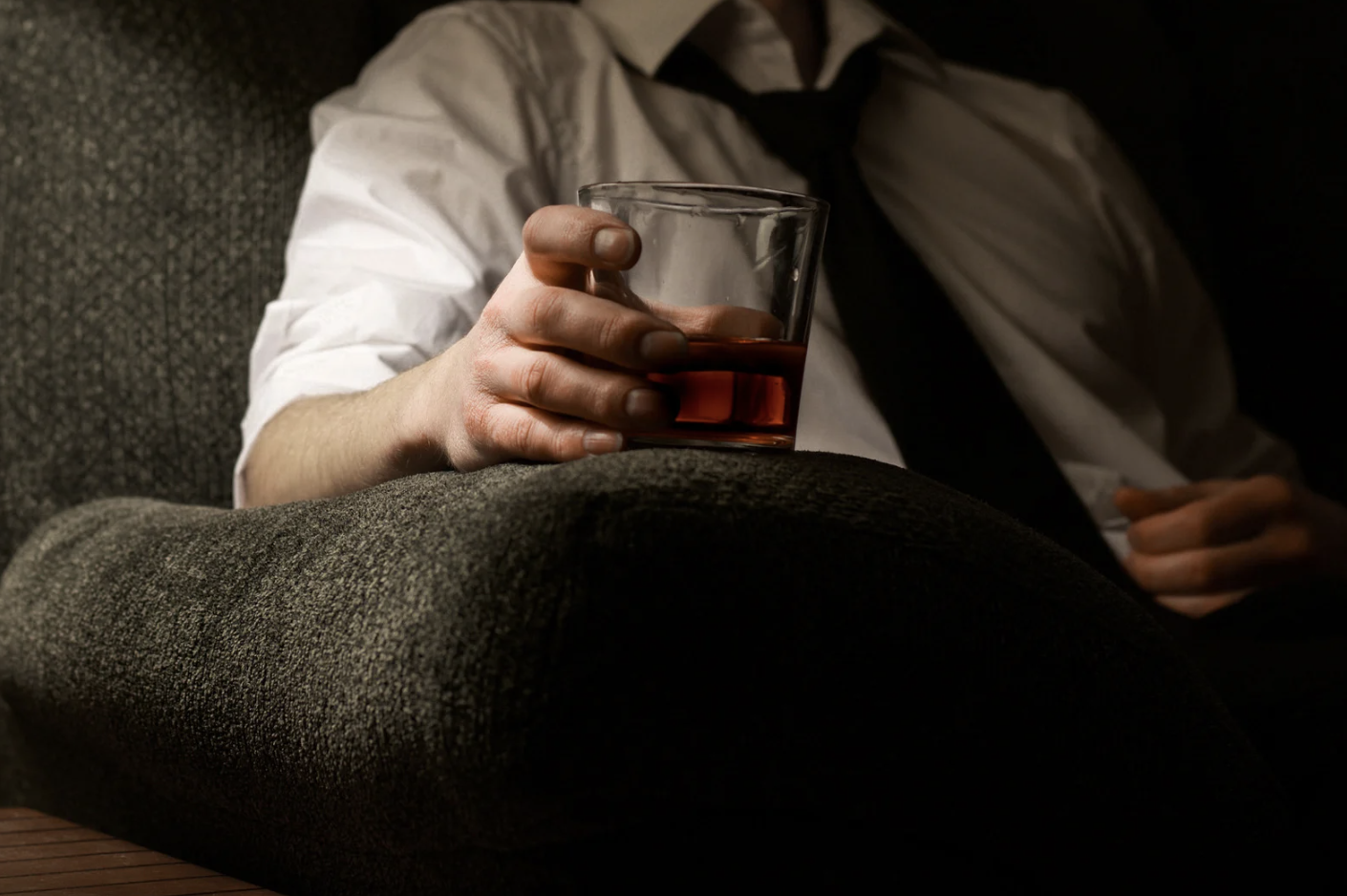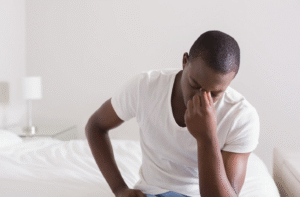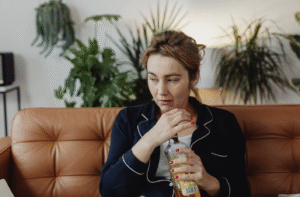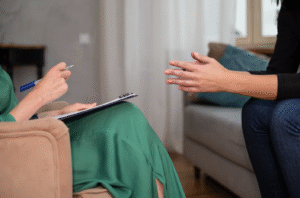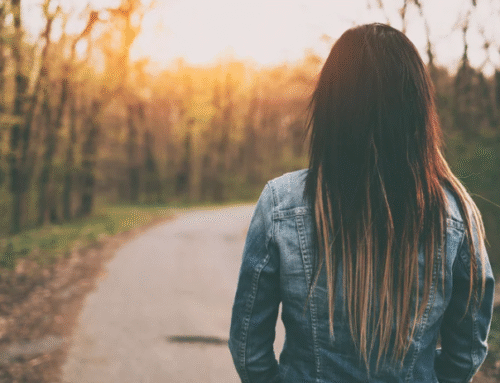For many Australians, having a drink at the end of the day feels like a well-earned reward. Whether it’s a glass of wine to unwind after work or a beer to take the edge off social nerves, alcohol is often seen as a quick fix for stress or anxiety. But what many people don’t realise is that alcohol can actually worsen anxiety over time, creating a vicious cycle that’s hard to break.
In this blog, we’ll explore the complex relationship between alcohol and anxiety – how alcohol initially soothes but ultimately fuels anxious thoughts and feelings. We’ll look at the science behind it, common patterns of use, how to tell if drinking is affecting your mental health, and what you can do about it.
Why We Turn to Alcohol for Anxiety Relief
Anxiety is one of the most common mental health conditions in Australia. According to Beyond Blue, one in four Australians will experience an anxiety condition in their lifetime. For many, alcohol seems to offer a temporary reprieve.
It’s no surprise – alcohol is a central nervous system depressant. It slows down brain activity, which can lead to feelings of relaxation and decreased inhibition. That first drink can reduce tension, quiet a racing mind, and help you feel more at ease socially.
In the short term, this can feel like a solution. But it’s important to ask: What happens when the effects wear off?
The Rebound Effect: How Alcohol Worsens Anxiety
What many people don’t realise is that alcohol’s calming effect is only temporary. As your body processes alcohol, it can lead to a rebound increase in anxiety – a phenomenon often referred to as “alcohol-induced anxiety” or “hangxiety.”
This happens for a few key reasons:
- Disruption of Brain Chemistry: Alcohol increases levels of GABA, a neurotransmitter that reduces activity in the brain and creates feelings of calm. At the same time, it decreases glutamate, which is responsible for excitatory responses. Over time, the brain tries to restore balance by reducing its sensitivity to GABA and increasing glutamate production. The result? When alcohol wears off, you’re left with a neurochemical imbalance – low GABA and high glutamate – which can lead to heightened anxiety, restlessness, and even panic.
- Activation of the Stress Response System: After drinking, your sympathetic nervous system – which controls your stress response – can become overactive. This is especially noticeable the next day, when people experience symptoms like increased heart rate, shakiness, sweating, or nervous energy. These are not just physical hangover symptoms; they are also signs of heightened anxiety.
- Poor Sleep Quality: Even though alcohol can make you feel sleepy, it actually interferes with your ability to get deep, restorative sleep. It disrupts REM sleep and leads to frequent awakenings in the second half of the night. This fragmented sleep increases fatigue, reduces emotional resilience, and makes it harder to manage stress and anxiety the next day.
The Cycle of Drinking and Anxiety
Because alcohol provides short-term relief but increases anxiety in the long term, it’s easy to become caught in a cycle:
- You feel anxious or stressed.
- You have a drink to take the edge off.
- You feel temporary relief.
- Later, anxiety returns – often worse than before.
- You drink again to manage the increased anxiety.
Over time, this pattern can lead to increased tolerance, meaning you need more alcohol to achieve the same calming effect. It can also result in dependence, where alcohol becomes a habitual or necessary way of coping with daily stress or emotional discomfort.
Alcohol and Social Anxiety
Social situations are a common trigger for anxiety, and many people drink to feel more confident or at ease in group settings. In fact, research shows that people with social anxiety disorder are more likely to use alcohol as a form of self-medication.
While alcohol may reduce social anxiety in the moment, it often backfires in several ways:
- You may become more self-critical afterward, replaying conversations or fearing you behaved inappropriately while drinking.
- Avoidance increases. If alcohol becomes the only way you feel able to manage social events, you may begin to avoid situations where drinking isn’t possible, reinforcing social anxiety over time.
- Alcohol impairs your ability to form genuine connections, which can increase feelings of loneliness and isolation – factors that worsen anxiety.
When to Be Concerned: Signs Alcohol Is Affecting Your Mental Health
You don’t need to be drinking daily or heavily for alcohol to be affecting your mental health. Some signs to watch out for include:
- You notice increased anxiety the day after drinking, even if you only had a few drinks.
- You find it hard to relax or sleep without alcohol.
- You’re drinking to manage stress, boredom, loneliness, or other emotions.
- You feel shame or regret after drinking.
- Your anxiety is getting worse, not better, over time.
If these experiences sound familiar, you’re not alone – and there are ways to feel better without relying on alcohol.
How Therapy Can Help
Working with a clinical psychologist can help you better understand your relationship with alcohol and anxiety, and begin to develop healthier coping strategies.
At MyLife Psychologists, we support adults who feel stuck in this cycle. Therapy is not about judgment or labels – it’s about working together to explore the emotional drivers behind your drinking and creating space for change that aligns with your values and goals.
Depending on your needs, therapy may include:
- Identifying Triggers and Patterns: Uncovering the situations, thoughts, or emotions that lead to drinking or anxious spirals.
- Learning Emotional Regulation Skills: Building your capacity to manage anxiety without needing to numb or avoid it.
- Challenging Unhelpful Thinking: Using evidence-based approaches like Cognitive Behaviour Therapy (CBT) to shift anxious thoughts and develop a more balanced perspective.
- Developing Self-Compassion: Exploring the role of shame and self-criticism in your anxiety and drinking patterns, and learning to respond to yourself with care and understanding.
- Supporting Behaviour Change: If reducing or stopping drinking is a goal, therapy can help you create a realistic, flexible plan that fits with your life – not someone else’s rulebook.
You Don’t Have to Quit Alcohol Completely to Feel Better
You might be wondering: Do I need to stop drinking entirely to reduce my anxiety? The answer is: not necessarily.
For some people, reducing alcohol use – even slightly – can lead to noticeable improvements in mood, energy, and anxiety levels. For others, quitting altogether might feel more aligned with their goals and values.
This is where harm reduction and personalised care come in. Your therapist can work with you to figure out what change looks like for you. It could mean:
- Having a few alcohol-free nights each week.
- Choosing different ways to wind down at the end of the day.
- Trying a short break from alcohol (like Dry July) and noticing how your body and mind respond.
Small changes can have a big impact.
Realistic Alternatives for Managing Anxiety
If alcohol has been your go-to coping strategy, it’s important to have other tools in your mental health toolkit. Some alternatives might include:
- Mindfulness or grounding exercises to calm your nervous system.
- Movement or exercise, which helps regulate mood and reduce anxious energy.
- Connecting with supportive people, even if it feels vulnerable.
- Breathwork, especially slow diaphragmatic breathing, to reduce physiological symptoms of anxiety.
- Creative outlets, like journaling or music, to express and release emotion.
Therapy can also support you in experimenting with new ways to manage your anxiety that feel realistic and sustainable – not performative or perfectionistic.
If You’re Feeling Stuck, You’re Not Alone
It’s incredibly common to feel ashamed or confused about your relationship with alcohol – especially if you’re someone who appears to be “functioning well” in other areas of life.
At MyLife Psychologists, we create a non-judgemental, compassionate space where you can talk openly about how you’re feeling and what you’re going through. We understand how hard it can be to manage anxiety, especially when alcohol feels like the only thing that helps.
But help is available. With the right support, it’s possible to reduce your anxiety, feel more in control, and find new ways of coping that support your wellbeing.
Ready to Take the Next Step?
If you’re wondering whether alcohol might be making your anxiety worse – or if you’re feeling overwhelmed, stuck, or unsure where to start – we’re here to help.
Contact us today to arrange a free 15-minute phone consultation with our Care Coordinator to help you find the right psychologist for your needs. We have immediate availability and flexible appointments, including after-hours. We’re here to support you on your path to better mental health.
References
- Australian Institute of Health and Welfare. (2023). Alcohol, tobacco & other drugs in Australia.
- Beyond Blue. (n.d.). Anxiety.
- National Institute on Alcohol Abuse and Alcoholism (NIAAA). (2021). Alcohol and anxiety: What’s the connection?
- Sleep Health Foundation. (2020). Alcohol and Sleep.
- Smith, J. P., & Randall, C. L. (2012). Anxiety and alcohol use disorders: Comorbidity and treatment considerations. Alcohol Research: Current Reviews, 34(4), 414–431.
- Turner, K. (2021). Hangxiety: What causes anxiety after drinking alcohol? Healthline.
Support Services in Australia
- Hello Sunday Morning / Daybreak App: Evidence-based support for changing your relationship with alcohol.
- Alcohol and Drug Foundation (ADF): Resources and education around alcohol and substance use.
- National Alcohol and Other Drug Hotline 1800 250 015: Free and confidential support available 24/7.
- Beyond Blue 1300 22 4636: For anxiety and mental health support.

